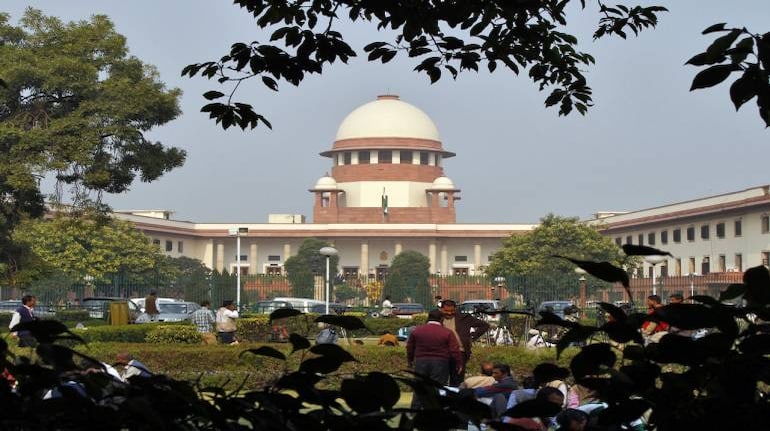
SC to organise workshop to enable staff to cope with stress during COVID-19 pandemic
The Supreme Court Administration has been focusing on physical aspect and ensuring the physical safety of all concerned from the contagion of COVID-19.
by PTIThe Supreme Court is organising an interactive workshop on Tuesday to ensure overall wellness and to create awareness amongst its officers, Registry officials, advocates and litigants to enable them to deal with the strain, fear and anxieties induced by the COVID-19 pandemic.
The apex court, which on Monday issued a press note in this regard, termed the current situation as unprecedented and said the workshop, 'Mind Matters', is being organised on the directions of Chief Justice S A Bobde, who noticed the stress, fear, anxiety and worries that are common responses due to uncertainty raised during COVID-19 Pandemic.
The workshop will be organized in collaboration with the Director, Institute of Human Behavior and Allied Sciences, Delhi on Tuesday.
All the officers of the rank of Registrars and Additional Registrars will join the workshop. Learning from the experience of the workshop interactive programmes will be arranged for others staff members and stake-holders in future.
COVID-19 Vaccine
Frequently Asked Questions
View more
How does a vaccine work?
A vaccine works by mimicking a natural infection. A vaccine not only induces immune response to protect people from any future COVID-19 infection, but also helps quickly build herd immunity to put an end to the pandemic. Herd immunity occurs when a sufficient percentage of a population becomes immune to a disease, making the spread of disease from person to person unlikely. The good news is that SARS-CoV-2 virus has been fairly stable, which increases the viability of a vaccine.
How many types of vaccines are there?
There are broadly four types of vaccine — one, a vaccine based on the whole virus (this could be either inactivated, or an attenuated [weakened] virus vaccine); two, a non-replicating viral vector vaccine that uses a benign virus as vector that carries the antigen of SARS-CoV; three, nucleic-acid vaccines that have genetic material like DNA and RNA of antigens like spike protein given to a person, helping human cells decode genetic material and produce the vaccine; and four, protein subunit vaccine wherein the recombinant proteins of SARS-COV-2 along with an adjuvant (booster) is given as a vaccine.
What does it take to develop a vaccine of this kind?
Vaccine development is a long, complex process. Unlike drugs that are given to people with a diseased, vaccines are given to healthy people and also vulnerable sections such as children, pregnant women and the elderly. So rigorous tests are compulsory. History says that the fastest time it took to develop a vaccine is five years, but it usually takes double or sometimes triple that time.
Mental wellness Helpdesk & tele-consultation is in contemplation for future in the Supreme Court of India, the press note said.
The Supreme Court Administration has been focusing on physical aspect and ensuring the physical safety of all concerned from the contagion of COVID-19. But the studies have indicated long term psychological distress of the pandemic.
In the wake of these stressful and testing times, the leaders in the administration need to lead from the front and ensure overall wellness of all the subordinates, besides keeping themselves mentally strong and well equipped to cope up with the stress and anxiety, the note said.
It said that learning from the experience of the workshop interactive programmes will be arranged for other staff members and stake-holders in future.
Mental wellness Helpdesk and tele-consultation is in contemplation for future in the Supreme Court of India, it said.
Follow our full coverage of the coronavirus pandemic here.